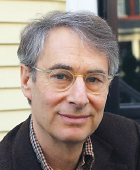Stumbling Toward Psychiatry
Abstract

I’ve been writing about psychiatry for over 30 years. As a result, I’ve told the “origin” story—how I chose this line of work—repeatedly, with an emphasis on religious heritage (in Moments of Engagement), family illness (in Against Depression), mentorship (in Ordinarily Well), and rescue fantasies (in Lee Gutkind’s collection, Becoming a Doctor). Here, I want to consider a different strand, a tension between idealism and pragmatism.
I made my career choice in the shadow of war in Vietnam. I had arrived at Harvard, in 1966, as an anti-war activist and gone on, as an undergrad, to write about war resisters and on-campus protesters. But my real love was for literature. On graduation, I headed to University College, London, on a scholarship program in the humanities. I experienced the distance from the states as a relief, but I felt guilt as well. Surely, I should be pursuing a “relevant” career, one with moral and political impact.
It was this tension, among others, that led me to seek psychoanalytic treatment. I underwent a doctrinaire analysis (complete with attention to castration anxiety), but with a psychiatrist, Max Goldblatt, who was an imaginative listener. I came to see psychiatry—the field—as a solution to my career conflict. Practicing psychotherapy, I could apply literary criticism to patients’ narratives. Meanwhile, I would be engaged in a revolutionary practice. I managed to frame Freudianism as a movement whose frankness about sexual drives ran counter to capitalism’s repressive strains.
Luckily, I had other influences. My father was a pharmacist. My mother had come to school psychology via occupational therapy. A family friend, Joan Doniger, had founded one of the first mental health halfway houses. They viewed my attachment to psychoanalysis with benign skepticism and exposed me to down-to-earth approaches to patient care.
I returned to Harvard for medical school. The psychiatry department was deeply Freudian, and I flourished in it. But time on the wards pushed me toward eclecticism. Impressed with the gravity and variety of patients’ needs, I resolved to apply whatever treatments might work.
To that end, I studied alternative psychotherapies with Leston Havens, community psychiatry with Milton Mazer, and social psychiatry with Robert Coles. Jonathan Cole—and my clinical experience—introduced me to psychopharmacology.
Then, serendipity played a role. In residency at Yale, I applied for the “psychotherapy track,” effectively, training in psychoanalysis. But because of my links to Mazer and Coles, the program assigned me to community psychiatry. For my final months, I arranged to apprentice with Walter Reich, a Yale professor based in Maryland at a federal agency that assisted community mental health centers.
That effort lost funding, and I moved to the Division of Science of the Alcohol, Drug Abuse, and Mental Health Administration, headed, in the Carter administration, by Gerald Klerman. Acting as his assistant, I set out to master the government research portfolio. I met pioneers in psychotherapy, psychopharmacology, and neuroscience.
Ronald Reagan assumed office. I left for Brown University and outpatient practice in Providence, R.I. Here is where the strands combined. I was still attempting close readings of patients’ stories, but I was also prescribing. As serotonergic antidepressants became available, I heard certain patients claim that medication boosted their assertiveness and social comfort. Fluoxetine made them “better than well.” Drawing on the research I had reviewed in my stint in government, I wrote about the prospects for (and dangers of) what I called cosmetic psychopharmacology—using medication to tweak personality. Opinion columns directed at colleagues led, in 1993, to a book for general readers, Listening to Prozac. The title was intended, in one meaning, to celebrate the therapist’s perspective in the face of the culture’s, and patients’, fascination with pharmacology.
I have seven books in print now and hundreds of essays and reviews. Most pieces arise from my practice and the posture I adopted early on, intent listening combined with focus on “what works.”
I never entirely abandoned romantic radical fantasies. In 2001, I published a novel, Spectacular Happiness, about an emotionally sensitive eco-terrorist. My work in progress is another novel, built around a therapist’s encounter with an egotistical political leader whose influence has led the country astray. As for the nonfiction, I see it as representing patients and the science that supports their care. On good days, I tell myself that, in the current political environment, advocacy has taken on aspects of the disruptive social cause I sought in my early years—that, in its sober way, it contains elements of resistance to the force of reaction.
Finally, my career choices, practicing psychiatry and writing about it, strike me as both overdetermined—all those origin stories!—and arbitrary. At the decision point, I had no idea what I was getting into. I had a sentimental impression of mental illness. I was wrong about the direction of the field.
This blindness, to the present and the future, proved inconsequential. What mattered were general values, such as the intention to be of service—those, and respect for what used to be called the reality principle, which in my case meant being open to the surprises that life in a profession can bring. ■



